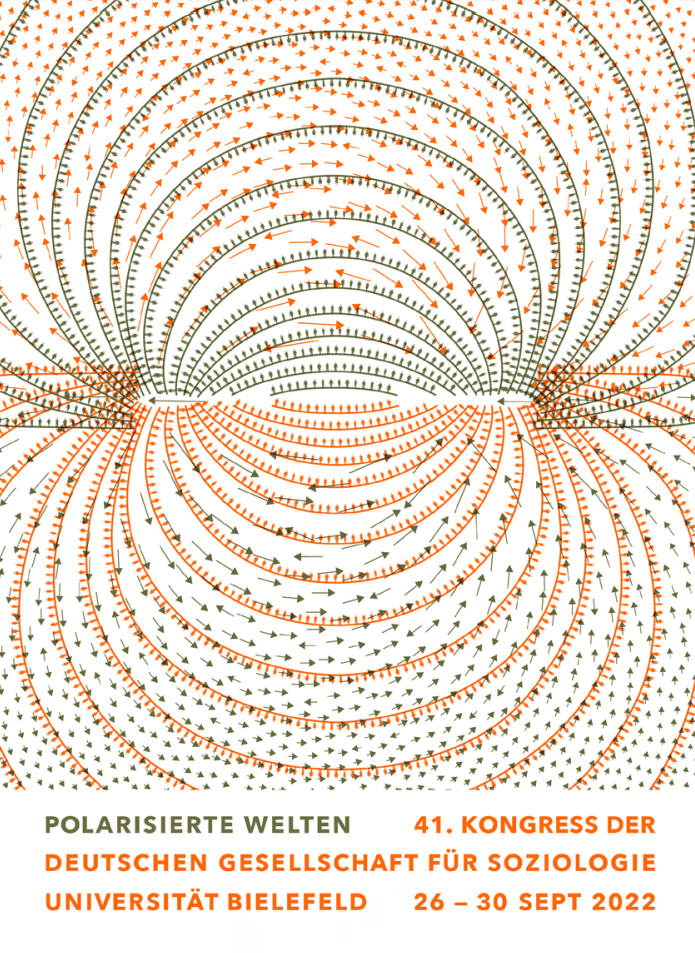Understanding Trans-Sequential Ethnography and its Place in the Contemporary Sociological Landscape
DOI:
https://doi.org/10.21241/ssoar.99235Schlagwörter:
EthnographyAbstract
What is trans-sequential ethnography? What defines it – both as a theoretical apparatus and a way of practicing ethnography? We address these questions by situating trans-sequential ethnography, also frequently known as trans-sequential analysis or TSA, within broader trends within the discipline of sociology as a whole. In particular, we argue that TSA can perhaps best be understood in two ways. First, we argue that it should be seen as standing within a long line of social theory which argues that the fundamental ontological condition of social life is one of, what we term, excess. Second, we argue that TSA should also be seen as a rather systematic attempt to overcome the methodological difficulties that sociologists (and ethnographers in particular) have encountered as a result of this ontological fact.
Literaturhinweise
Abbott, Andrew. 1988. Transcending general linear reality. Sociological Theory 6:169–186.
Coser, Lewis A. 1975. Presidential address: Two methods in search of a substance. American Sociological Review 40:691–700.
Geertz, Clifford. 1988. Works and lives: The anthropologist as author. Stanford: Stanford University Press.
Katz, Jack. 2004. On the rhetoric and politics of ethnographic methodology. The ANNALS of the American Academy of Political and Social Science 595:280–308.
Kolanoksi, Martina. 2023. Das forschungsprogramm der trans-sequentiellen analyse. In: Trans-Sequentiell Forschen, eds. Martina Kolanoski, Carla Martina, Marlen Löffler and Carla Terjung, 1–31. Wiesbaden: Springer.
Knorr-Cetina, Karin D. 1981. The manufacture of knowledge: An essay on the constructivist and contextual nature of science. Oxford: Pergamon Press.
Liefke, Mirco, und Matthew Mahler. 2023. Betwixt and between: A trans-sequential analysis of broadcast journalism. In: Trans-sequentiell forschen: Neue Perspektiven und Anwendungsfelder, eds. Martina Kolanoski, Carla Martina, Marlen Löffler and Carla Terjung, 141–174. Wiesbaden: Springer.
Lundberg, Ian, Rebecca Johnson and Brandon M Stewart. 2021. What is your estimand? Defining the target quantity connects statistical evidence to theory. American Sociological Review 86:532–565.
Scheffer, Thomas. 2007. Event and process: An exercise in analytical ethnography. Human Studies 30:167–197.
Scheffer, Thomas. 2010. Adversarial case-making: An ethnography of English Crown Court procedure. Leiden: Brill.
Scheffer, Thomas. 2013. Die trans-sequentielle analyse – und ihre formativen objekte. In: Grenzobjekte: Soziale Welten und ihre Übergänge, eds. Reinhard Hörster, Stefan Köngeter and Burkhard Müller, 87-114. Wiesbaden: Springer.
Scheffer, Thomas. 2019. Spielarten der trans-sequentialität. Zur Gegenwartsdiagnostik gesellschaftlicher Problembearbeitungskapazitäten entwickelt aus ethnografien staatlicher Verfahren. In: Medien der Kooperation – Media of Cooperation. Materialität der Kooperation, eds. Sebastian Gießmann, Tobias Röhl, and Ronja Trischler, 331–358. Wiesbaden: Springer.
Wacquant, Loic. 2002. Scrutinizing the street: Poverty, morality, and the pitfalls of urban ethnography. American Journal of Sociology 107:1468–1532.
Downloads
Veröffentlicht
Ausgabe
Rubrik
Lizenz
Copyright (c) 2023 Polarisierte Welten. Verhandlungen des 41. Kongresses der Deutschen Gesellschaft für Soziologie 2022

Dieses Werk steht unter der Lizenz Creative Commons Namensnennung - Nicht-kommerziell 4.0 International.
Beiträge im Verhandlungsband des 41. Kongresses der Deutschen Gesellschaft für Soziologie in Bielefeld werden unter der Creative Commons Lizenz "Namensnennung-Nicht kommerziell 4.0 International (CC BY-NC 4.0)" veröffentlicht.
Dritte dürfen die Beiträge:
-
Teilen: in jedwedem Format oder Medium vervielfältigen und weiterverbreiten
-
Bearbeiten: remixen, verändern und darauf aufbauen
unter folgenden Bedingungen:
-
Namensnennung: Dritte müssen angemessene Urheber- und Rechteangaben machen, einen Link zur Lizenz beifügen und angeben, ob Änderungen vorgenommen wurden
-
Nicht kommerziell: Dritte dürfen das Material nicht für kommerzielle Zwecke nutzen





